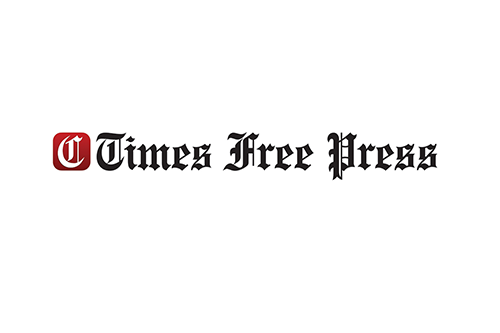
Illuminate Conference
LITERATURE SESSIONS
Click each title to expand for session description and presenter information.
The Censure of Madeleine L'Engle
Presenter: Abigail Santamaria, MFA, author
Telling Extraordinary Stories Through Biographical Writing
A Hunger for Beauty: C.S. Lewis' Journey to Faith
Presenter: David C. Downing, PhD, author and retired co-director of Wheaton College's Marion E. Wade Center
Kurt Vonnegut: Christianity’s Unlikely Ally
Presenter: Mary Baggett, PhD, Houston Christian University
Toni Morrison and the Limits of Utopian Thinking
Presenter: Mary Baggett, PhD, Houston Christian University
Surprising Hope: Edmund Spenser’s Final Fragment of “The Faerie Queene”
Presenter: Rebecca K. Reynolds, MA, associate publisher for Oasis Family Media
Poetry From the Asylum: Molly McCully Brown’s “Virginia State Colony for Epileptics and Feebleminded”
Presenter: Emily McArthur, PhD, Southern Adventist University
Prophetic Deconstruction: Literary Critiques of Cultural Christianity
Presenter: Mary McCampbell, PhD
Charles Wright's Poetic Quest for God in “Appalachian Book of the Dead”
Presenter: Daniel Gleason, PhD, Bryan College
Prayer-Writing Workshop: Liturgy as Legacy
Presenter: Douglas McKelvey, author
Flash Fiction Workshop
Presenter: LaEsha Sanders, MFA, Southern Adventist University
MUSIC SESSIONS
Click each title to expand for session description and presenter information.
Remembrance as Experienced in the Works of Robert Schumann
Presenter: Mia Chung, DMA, Harvard University
Narrative Design in Beethoven's "Waldstein" Sonata in C Major, Op. 53
Presenter: Mia Chung, DMA, Harvard University
Duke Ellington’s Sacred Concerts
This session will explore Ellington's colorful background and how the legendary musician came to create these spiritual pieces.
Presenter: Alan Wyatt, MM, Lee University
Old Made New: Classical Organ in Contemporary Worship
Presenter: Devon Howard, DMA, Collegedale Church of Seventh-day Adventists
Crafting Impactful Worship
Presenter: Devon Howard, DMA, Collegedale Church of Seventh-day Adventists
Community Building Through Collaborative Musical Experiences
Presenter: Ismael Sandoval, Chattanooga Symphony & Opera
Here I Am to Worship: Understanding the Significance of Contemporary Praise and Worship Music
Presenter: David Williams, PhD, Andrews University
Whose Song Shall We Sing? Cultivating Musical Inclusion in Worship Today
Presenter: David Williams, PhD, Andrews University
Songwriting Workshop / two sessions
Presenters: Nick Zork, PhD, NYC Church of Advent Hope; and Chris Slaten, Chattanooga Christian School
Visual Art Sessions
Click each title to expand for session description and presenter information.
Drawing Upon Scripture
Presenter: John Hendrix, MFA, Washington University in St. Louis
A Short History of All Art: The What, Why, and How of Art-Making
Presenter: John Hendrix, MFA, Washington University in St. Louis
The Art of Attentiveness: Looking Close in an Age of Infinite Scrolling
Presenter: Elissa Yukiko Weichbrodt, PhD, Covenant College
Michelangelo’s David and Our Hunger for Glory
Presenter: Russ Ramsey, MDiv, author and pastor
Van Gogh Has a Broken Heart: What Art Teaches Us About the Wonder and Struggle of Being Alive
Presenter: Presenter: Russ Ramsey, MDiv, author and pastor
Norman Rockwell and the Honest Work of Storytelling In a Changing Country
Presenter: Presenter: Russ Ramsey, MDiv, author and pastor
Christian Apologetics in the Entertainment Industry
Presenter: Kevin Jackson, animator
Pop Culture’s (Selective) Witness to the World
Presenter: Kevin Jackson, animator
No Art in Heaven?
Presenter: Donald Keefe, MFA, Southern Adventist University
Drawing Workshop: Finding Creation in the Human Form / Two sessions
Presenter: Jesse Rademacher, MFA, Southern Adventist University
Printmaking Workshop / TWO SESSIONS
Presenter: Ned Bustard, artist
INTERDISCIPLINARY sessions
Click each title to expand for session description and presenter information.
Eugene Peterson and the Christian Imagination
Presenter: Winn Collier, PhD, author, pastor, and director of the Eugene Peterson Center
Dorothy Sayers and the Illumination of Theater
Presenter: Crystal Downing, PhD, retired co-director of Wheaton College's Marion E. Wade Center
C.S. Lewis and Dorothy Sayers: A Feisty Friendship
Presenter: Crystal Downing, PhD, retired co-director of Wheaton College's Marion E. Wade Center; Robert Downing, PhD, retired co-director of Wheaton College's Marion E. Wade Center
Prescribing Creativity: The Power of Arts and Well-Being
Presenter, Richard Hickam, DWS, corporate director of Music & the Arts at AdventHealth
Monsters Among Us: Imbalance and Redemption in “Ultraman” Series
Presenter: Rebecca K. Reynolds, MA, associate publisher of Oasis Family Media
Apocalypse Now, Then, or Never: Why We Love Dystopian Stories
Presenter: Mary McCampbell, PhD
Exploring the Mysteries of Creative Collaboration
Presenters: Douglas McKelvey, Ned Bustard, Rebecca K. Reynolds, Andy Gullahorn, Jill Phillips
Stories That Shape Us: Ritual, Identity, and Meaning
Presenter: Mervyn Weir, creative director of Krik Krak Media
Competing with Legends: Storytelling Quality as Marketing Equalizer
Presenter: Mervyn Weir, creative director of Krik Krak Media
Panel Discussion: Arts in the Classroom, Arts in the Home
The “100 Things List” Workshop: Finding Your Voice in a Sketchbook
Presenter: John Hendrix, MFA, Washington University in St. Louis
CONFERENCE SCHEDULE
Individual presentations have not yet been assigned their specific days/times within
the larger conference schedule. However, the itinerary listed below is an accurate
representation of each day's progression.
MONDAY, MARCH 31
8-9 am / Check-In / Lobby
9-10:30 am / Session #1 / Breakout Rooms
11 am / Plenary / Sanctuary
12-2 pm / Lunch (on-site meal for ticket holders)
2-3:30 pm / Session #2 / Breakout Rooms
4-5:30 pm / Session #3 / Breakout Rooms
5:30-7:30 pm / Dinner (on your own)
7:30-9 pm / Performance-Lecture / Sanctuary
TUESDAY, APRIL 1
9-10:30 am / Session #1 / Breakout Rooms
11 am / Plenary / Sanctuary
12-2 pm / Lunch (on your own)
2-3:30 pm / Session #2 / Breakout Rooms
4-5:30 pm / Session #3 / Breakout Rooms
5:30-7:30 pm / Dinner (on-site meal for ticket holders)
7:30-9 pm / Closing Concert / Sanctuary
Monday Night Performance-Lecture
Mia Chung, Harvard professor and world-class concert pianist, speaks on the intersections between Beethoven, suffering, and faith during this presentation for The Veritas Forum. Her Monday night performance-lecture is titled "Narrative Design in Beethoven's 'Waldstein' Sonata in C Major, Op. 53."
Tuesday Night Performance
The talented husband/wife team of Andy Gullahorn and Jill Phillips will close out the Illuminate conference with a full concert.
The Illuminate Art and Faith Conference is made possible by generous support from event sponsors. Thank you!




